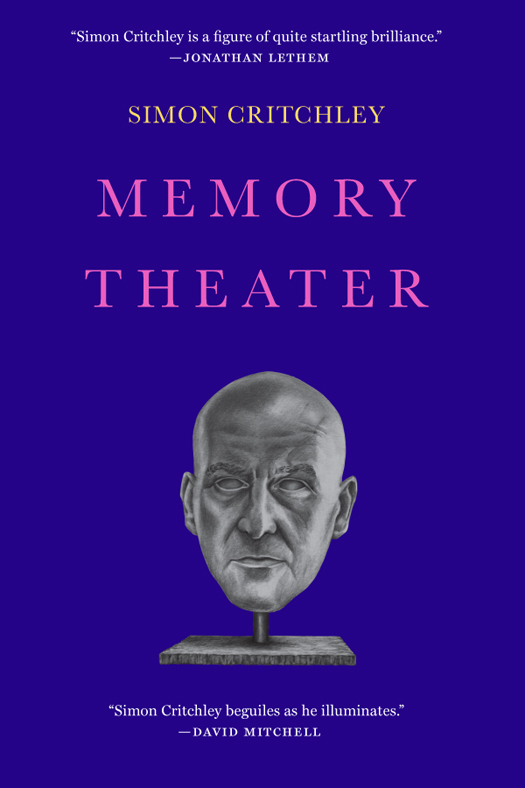
Memory Theater
A Novel
کتاب های مرتبط
- اطلاعات
- نقد و بررسی
- دیدگاه کاربران
نقد و بررسی

Starred review from July 6, 2015
From philosopher Critchley (The Book of Dead Philosophers) comes this debut novel, a not-quite-nonfiction story that fuses its author’s long-standing engagement with critical theory and a narrative inquiry into mortality and remembrance that is original, observant, and unexpectedly moving. In 2004, aging professor Simon Critchley discovers a stack of boxes belonging to his deceased friend and mentor, Michel Haar. Organized according to the signs of the zodiac, the boxes contain unpublished papers on Friedrich Nietzsche, Martin Heidegger, and Thomas Carlyle; Haar’s primary interest seems to have been in the Renaissance concept of the memory theater. Haar’s commentaries have particular relevance for Critchley, whose own memory was seemingly damaged in an accident years earlier; increasingly beguiled by the eerily accurate horoscopes that Haar left behind, Critchley resolves to build his own full-scale memory theater, populated with manifestations of his life and learning, to be completed at the hour of his death—which has been foretold by Haar in his papers. As anyone familiar with the works of Critchley (or his frequent collaborator Tom McCarthy) might expect, this speculative narrative is peppered with copious references like Medieval heresy, the avant-garde, and Mark E. Smith of the English punk group the Fall. These essayistic reveries hang together so beautifully with the unfolding mystery that the book becomes, in essence, a theater of its own. The novel is short enough to be absorbed in a single sitting, but the questions posed by author/character Simon regarding the full ramifications of the soul’s saturation in history will linger indefinitely.

September 15, 2015
An academic receives a series of documents from a deceased colleague, leading him down an obsessive path.Critchley's surreal and intellectual novel begins with a kind of memento mori: "I was dying. That much was certain. The rest is fiction." That neatly establishes the mood of what's to come: a meditation on philosophy and mortality that begins carefully and meticulously and slowly heads into progressively more irrational strata. And yet it's also a playful nod to the more metafictional aspects of the book: the narrator here appears to be a version of Critchley, but the story being told can best be described as a novel, unlike the rest of its author's work. The novel begins when Critchley receives a selection of documents compiled by his late colleague Michel Haar; in a glossary at the back of the book, Critchley notes that "much of what is said about him above is true. Some of it isn't." And so it goes: real philosophers interweaving, with brief observations on aging, culture, and Critchley's fondness for the long-running post-punk band The Fall. Into this precise literary structure comes a series of precise intellectual structures: first, a series of memory maps, which take on precognitive abilities: "Their purpose was to plot the major events in a philosopher's life and then to use those events to explain his demise." And from there comes the structure that gives the book its title: a memory theater, a concept with which the narrator becomes progressively more obsessed. What begins as an eminently rational work slowly takes on a haunting illogic, a kind of intellectual horror creeping in. This strange, mesmerizing novel is hard to shake, evoking lucidity, mortality, and weirdness in equally memorable measures.
COPYRIGHT(2015) Kirkus Reviews, ALL RIGHTS RESERVED.

























دیدگاه کاربران